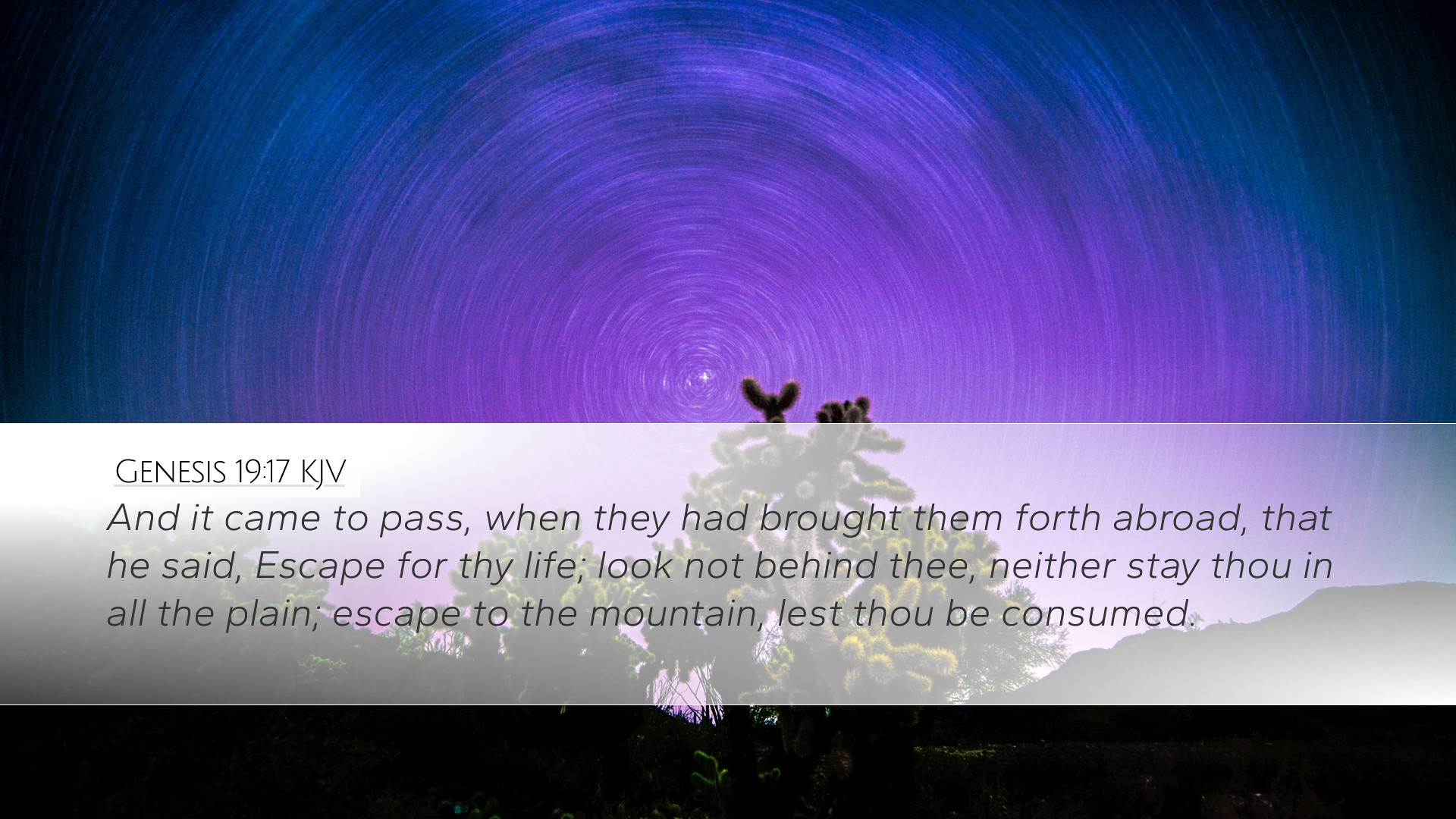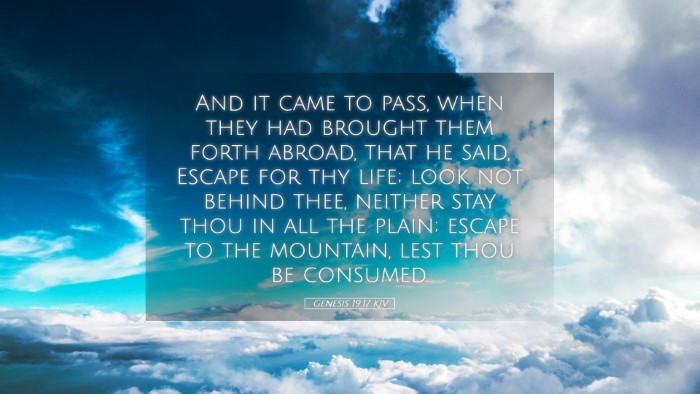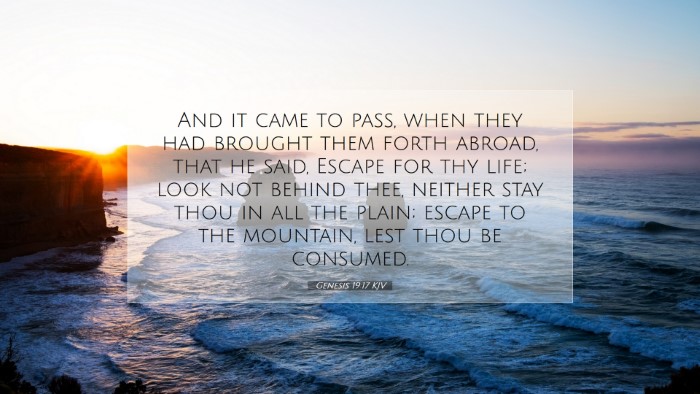Commentary on Genesis 19:17
Genesis 19:17 states: "And it came to pass, when they had brought them forth abroad, that he said, Escape for your life; look not behind thee, neither stay thou in all the plain; escape to the mountain, lest thou be consumed." This verse captures crucial themes of divine deliverance, the urgency of obedience, and the peril of turning back to sin. Here, we analyze various public domain commentaries to draw meaningful insights for pastors, students, theologians, and Bible scholars.
The Context of the Verse
The context of Genesis 19 involves the destruction of Sodom and Gomorrah, cities notorious for their wickedness. Lot and his family are urged to flee this impending judgment. The urgency of the command to escape illustrates God's desire to save the righteous from destruction. The emphasis on not looking back points to a common biblical theme—faith requires a forward-looking trust in God.
Insights from Matthew Henry
Matthew Henry emphasizes the mercy of God demonstrated in the deliverance of Lot and his family. He notes that the command to "escape for your life" signifies the serious nature of sin and its consequences. Henry points out that looking back symbolizes a lack of faith and an attachment to the sinful life that one is departing from. He writes:
"Those who have God's warnings should take heed of them, keeping their eye upon the prize of eternal life, not glancing back at the perishing world."
The lesson here extends beyond the historical setting; it challenges believers to confront the habits and associations of their past life that may hinder their spiritual journey.
Insights from Albert Barnes
Albert Barnes discusses the practical implications of this command, noting that the instruction to escape to the mountains suggests a need for both physical and spiritual refuge. Barnes comments on the phrase "look not behind thee," stating that it reflects the temptation individuals face to linger in old patterns. He observes:
"To look back is to express a desire to return to that which one is called out of; it demonstrates a heart that is not fully committed to God's deliverance."
Barnes further elaborates that the mountain represents safety, a place away from the corruption of Sodom. His commentary invites readers to seek their refuge in God, who provides safety from the moral decay of the world.
Insights from Adam Clarke
Adam Clarke offers a detailed analysis of the geographical implications, suggesting that the "mountain" signifies a place of elevation and separation from worldly influences. He points out that the command "neither stay thou in all the plain" serves as a warning against complacency. Clarke argues:
"Spiritual elevation is essential; a believer must constantly strive to rise above the lowlands of sin and temptation."
Clarke’s observations underline the necessity of pursuing a higher spiritual walk, illustrating that the call to escape from Sodom is emblematic of the believer’s journey away from sin towards holiness.
The Significance of 'Escaping to the Mountain'
The directive to escape to the mountain can be interpreted in various ways. Symbolically, mountains often represent strength and elevation in scripture. The various commentaries converge on the notion that believers are to seek refuge in God, who is their stronghold. This aligns with the broader message of finding solace in Christ amidst trials and temptations.
Practical Applications
- Urgency in Obedience: Like Lot, believers today should respond swiftly to God's calling. Procrastination can lead to spiritual peril.
- The Danger of Looking Back: Reflecting on past sins can be detrimental. Instead, believers are called to focus on the hope that lies ahead.
- Seeking Spiritual Refuge: Just as Lot was directed to the mountains, believers should intentionally seek environments and relationships that promote spiritual growth and shield them from temptation.
Conclusion
Genesis 19:17 serves as a powerful reminder of God's grace and the serious nature of sin. The insights from Henry, Barnes, and Clarke highlight the need for believers to actively pursue holiness while relying on God's deliverance. The transformative call to move forward—escaping the confines of sinful living—continues to resonate with Christians today, emphasizing a life dedicated to following Christ wholeheartedly without looking back.


